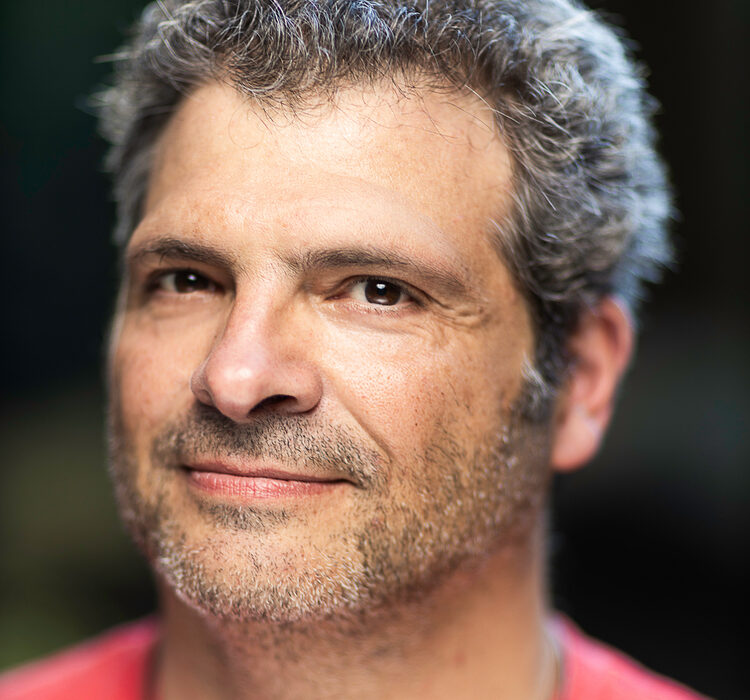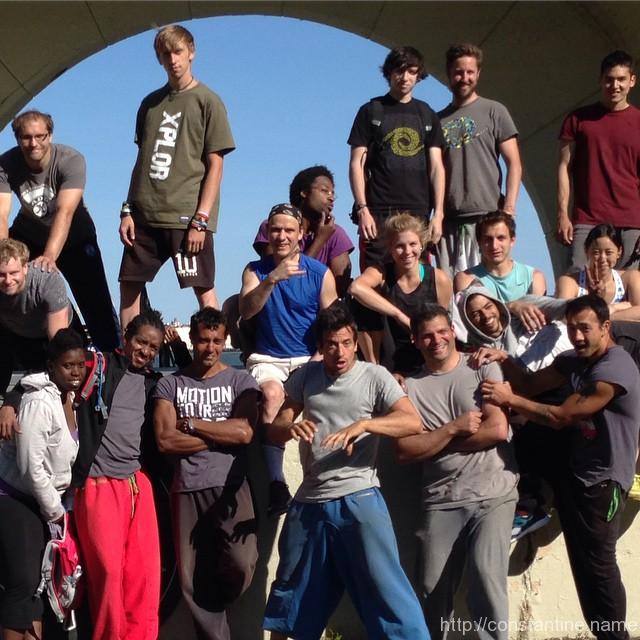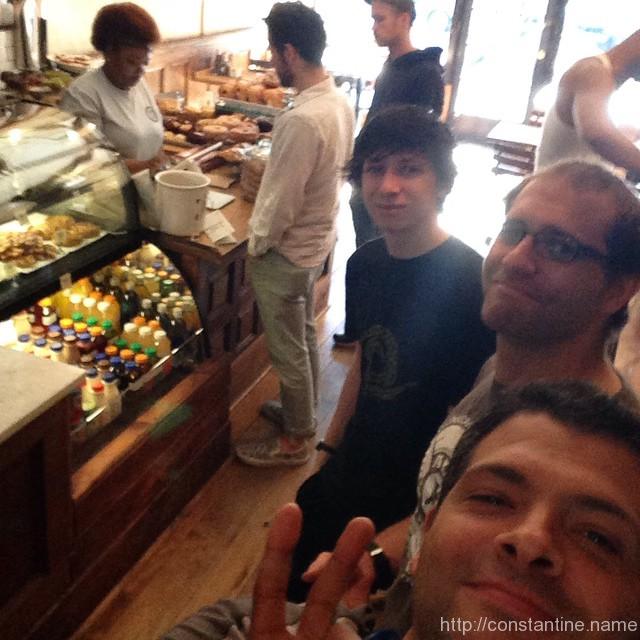All original parts, some wear. As I’m starting to look for opportunities to coach in movement spaces, a headshot is a requisite.
ɕ

All original parts, some wear. As I’m starting to look for opportunities to coach in movement spaces, a headshot is a requisite.
ɕ
How can we effectively handle conversations where multiple topics or threads are presented simultaneously, ensuring a balance between active listening, addressing key points, and maintaining conversational flow?
Craig Constantine and Jesse Danger explore navigating multiple topics gracefully, leveraging listening as a tool, and the nuanced dance of giving and receiving information.
Craig and Jesse discuss the intricacies of handling conversations that veer into multiple directions simultaneously. They ponder the challenges and strategies involved when participants in a conversation introduce several topics at once, emphasizing the importance of active listening as a critical response in such scenarios.
I often signpost. So Jesse says ‘a’ and ‘b’ and ‘c’ and throws all these things at me, and then I grab ‘b’ and I start talking about it. I often try to end with, “and I think I missed a lot of other things that you threw at me, Jesse.” I’ll at least raise a semaphore [that] I’m aware that I only did one, sorry. I think that may go a long way just because that’s the same type of behavior—or it comes from the same type of intention—as listening.
~ Craig Constantine (3:40)
Craig suggests that encountering multiple threads often signals a greater need for him to listen attentively, rather than attempting to contribute equally across all topics. This approach, he believes, allows for a deeper engagement with the conversation by prioritizing understanding over speaking.
The thing I do is latch on to either, whatever I’m most curious about, or more often, whatever kind of bothers me the most. If someone has a list of things that are bothering them then I’ll hop right into the one that’s not quite right. And I feel like that can really shut the conversation down.
~ Jesse Danger (2:00)
Jesse shares his tendency to focus on aspects of the conversation that either pique his curiosity or bother him the most, acknowledging that this approach might sometimes prematurely shut down the dialogue.
On the other hand, they discuss ways to acknowledge the multiple facets of a conversation without necessarily addressing each one immediately. This method involves explicitly recognizing the topics introduced by the other person, thereby validating their contributions and indicating a willingness to engage, albeit with a focused approach. Jesse and Craig explore the idea that effective conversation management requires a balance between guiding the dialogue gently and allowing the natural flow of topics, driven by the participants’ interests and passions.
Resources
Nonviolent Communication (NVC) — https://www.cnvc.org
Say What You Mean — by Oren Jay Sofer, https://www.orenjaysofer.com/
ɕ
(Written with help from Chat-GPT.)
I’m frequently, acutely aware of the ephemeral nature of everything I create. As I’m writing—right this moment—I’m sitting outside. The notebook computer I’m typing upon has a display—the “lid”—which is maybe one quarter inch thick. It even feels thin when I reach out and grasp it on both sides between my thumbs and forefingers; Thin, like grabbing a pinch of salt feels thin. Visually, around the display I see the table, the lawn, a tree, a garden, a shed, then other trees, houses… an entire, real world that I could, in but a moment, stand up and move into. Then I grasp this little display… everything I create is “within” the pinch of my fingers… then I tip the display towards me, and glance behind the display… nothing I create is behind the display either… from the other side—say, a passer-by’s perspective—I’m just a person, hyper-fixedly staring into the other side of the small, opaque, grey rectangle they see.
We’re at the end of a vast, multi-faceted con of internet users, where ultra-rich technologists tricked their customers into building their companies for free. And while the trade once seemed fair, it’s become apparent that these executives see users not as willing participants in some sort of fair exchange, but as veins of data to be exploitatively mined as many times as possible, given nothing in return other than access to a platform that may or may not work properly.
~ Edward Zitron from, Are We Watching The Internet Die?
slip:4uweae1.
But, boy howdy! what a universe is pinched into that thin, living, little square that I see, from my point of view.
ɕ
These details may seem trivial to the foolish, but to the thoughtful they will not seem trivial. The proper, wise balancing of one’s whole life may depend upon the feasibility of a cup of tea at an unusual hour.
~ Arnold Bennett
slip:4a1171.
Back at the start of January I mentioned, “Indeed. If it is to my advantage tomorrow, it is much more so today.” My touch phrase, “choose today” for 2023 continues to be a poignant reminder. I’ve now written it at the bottom of every journal entry this year, it often comes to mind in moments when I most need it, and it always reminds me of this:
Stick to what’s in front of you—idea, action, utterance. This is what you deserve. You could be good today. But instead you choose tomorrow.
~ Marcus Aurelius
slip:4a488.
“If it is to my advantage tomorrow, it is much more so today.” is a direct quote of Epictetus. Aurelius was born shortly after Epictetus’s death. But Aurelius makes a point of thanking one of his teachers, Rusticus saying in part, “[…] And for introducing me to Epictetus’s lectures–and loaning me his own copy.”
Which leads me to the first thing “choose today” reminds me of each day: Knowledge, and in particular wisdom, are gained through others by seeking out those who have something you wish to learn. These people which I’m mentioning lived thousands of years ago. Others (in other traditions from other regions of the world in other centuries) have separately discovered these same ideas, which makes it clear to me that these ideas are worth considering.
The second thing “choose today” reminds me of is to be forward-looking. Certainly I want to observe and consider my past (and the past of others!) but I should be looking towards the future. If something feels urgent, then where exactly is that sense of urgency coming from, and is the urgency real? If something feels important— same questions. If something feels _insert_whatever_here_— same questions. And then, what can I choose today?
ɕ
Never be mean to somebody who can hurt you by doing nothing. The reality is, that’s probably true of everybody you interact with; you’re interacting with them because you want them to do something.
slip:4a910.
Do conversations have known best practices? How much do they improve the odds of landing on the truth?
~ “Dynomight” from, Talking about sugar
slip:4udydo1.
I hate this terrific article. It’s completely stuffed with great ideas and great questions… and exactly zero answers. It starts talking about the particular type of conversation where two people acting benevolently are trying to find the truth about something under discussion. (Here I snicker at all of humanity, and myself, because we’ve been having conversations for like a gazillion years and we don’t yet know how to do it well.) It then narrows down to discussing just online conversations. Said narrowing feels like a great idea because there are a lot of online conversations and it feels like something we should be able to be good at. (Again here, snickering is warranted.) Anyway, at least some people are trying. Maybe, just maybe this is the epoch we get it sorted out?
ɕ
It’s endlessly rewarding to regularly read through my old journals. Six years ago, June 5 2015, I can now see was a turning point for me. I hopped in a car with John G. and Nick R. and headed to Brooklyn for what would be a life-changing experience.
I had been jumping on stuff pretty seriously for a few years, and the “USA Motion Tour”—a merry band of a few Yamakasi—was rolling into New York City. Two people, now good friends of mine after many years, hosted me on their floor. That was my first true “parkour floor” experience; two square meters to sleep, wifi and a bathroom. I trained my heart out, in a good way, and it was a gateway to countless and continuing adventures.
To everyone who was there— I cannot thank you enough. On commence ensemble, on finit ensemble.
ɕ
I have a confession to make: even though I love sound, I don’t really like sound equipment. […] Unfortunately, my bad attitude clashes with an important truth about audio storytelling: your equipment matters.
~ Andrew Wardlaw from, Recording Kit Tune Up
slip:4utare1.
Today, more of a bookmarking post than deep thinking. If you do anything with recording interviews—or even if you just own ONE cable to charge your phone—this article is chock-full of neat ideas.
…of course, if you’re into recording, I recommend handing your cash/cards over to someone you trust before reading it. I confess I was off on a few sites hovering over the buy button on a few new toys. ;)
ɕ

ɕ

LVPK representing! So happy we got this trip in!
ɕ

Bleachers. Stairs. Hmmmmm … what could we possibly do here?
ɕ
WWII Workout Week concludes with some exercises you can do to improve your posture. While posture is an oft neglected part of physical training programs, it provides a myriad of benefits and can boost both your physiological functions and your confidence.
slip:4uaowi4.
Circa 1946, from the Army field manual FM 21-20. ‘ten-HUT!
ɕ

Hello again NYC. Glorious weather over here!
ɕ

Food first, then off to East River Park.
ɕ

Here are 20 (out of 36 total) slides from their honeymoon to Niagara falls in 1968.
ɕ
We are at the very beginning of time for the human race. It is not unreasonable that we grapple with problems. There are tens of thousands of years in the future. Our responsibility is to do what we can, learn what we can, improve the solutions and pass them on. It is our responsibility to leave the men of the future a free hand. In the impetuous youth of humanity, we can make grave errors that can stunt our growth for a long time. This we will do if we say we have the answers now, so young and ignorant; if we suppress all discussion, all criticism, saying, ‘This is it, boys, man is saved!’ and thus doom man for a long time to the chains of authority, confined to the limits of our present imagination. It has been done so many times before.
~ Richard Feynman from, Richard Feynman on the Universal Responsibility of Scientists
slip:4ubaie1.
Feynman wrote several great, short books that are not hard science. This, and “Surely You’re Joking, Mr. Feynman!”, are great places to start.
ɕ